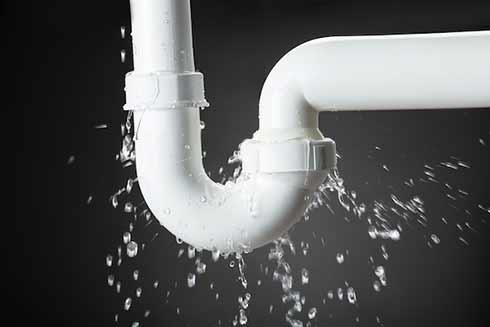
If there is one thing you can expect from the plumbing in your home, it is that at some point the pipes in your home are going to leak. This is one of the realities of living in a home with modern plumbing. Pipes leaks in your home are inevitable, says Brentwood Square Management. The most you can ask for when leaks happen is that they don’t cost a ton of money to fix, and you can catch them before they do major harm.
However, for pipes not to leak often or cause massive damage to your home, you need to know what makes pipes leak in the first place. If you don’t know this, you will always be playing catch-up to the problems in your home’s plumbing system. On the other hand, if you know what causes leaks and how to prevent them, the plumbing will be a lot easier to manage.
Every leak that happens within the plumbing system has an origin or a cause. That origin may be due to human error, natural events, or the result of wear and tear. Regardless of how the leaks in your pipes originate, those problems can be prevented if you can find them on time. To detect potential problems in the piping systems you must know where to look.
Common causes of leaks in your home’s plumbing
If there are leaks in your home’s plumbing, one of these is going to be the most likely cause of the problem.
Clogged pipes
A common reason water pipes get clogged is sedimentation. If your water has a high mineral content or a lot of debris in it, these are deposited inside the pipes as the water flows through them. These sediments can build up to the point where they narrow the diameter of the pipe. This will increase the water pressure inside the system and increase the likelihood of leaks.
High water pressure
Low water pressure is annoying, but it often won’t cause any damage to your pipes. Conversely, high water pressure is deadly to your pipes. Your pipes are not designed to handle anything more than 81psi of pressure. If the water pressure exceeds this level, your pipes can burst or leak.
Corrosion
Although you don’t see it, the water flowing through your pipes interacts with them in some way. If the water is high in mineral content, some of the minerals will be deposited inside the pipes. This can lead to pipe and pipe joint corrosion. Pipes will also corrode if the water pH is too high or too low and if there is too much oxygen in the water.
Aging pipes
Plumbing pipes have a projected lifespan. When they approach the end of their life expectancy, pipes start to lose their structural integrity and functionality. Here is the average lifespan for different types of pipes: brass: 40-70, galvanized steel: 20-50 years, copper: 50+ years, cast iron: 75-100 years, and PVC pipes: indefinite.
Poor workmanship
Hiring unqualified people to work on your home’s plumbing will damage your pipes. A professional plumber goes through rigorous training that ensures they know the right procedures for working with the plumbing. Moreover, they have a code of conduct they follow. Non-professionals don’t know the right procedures and are not bound by any codes.
Earth movements
Building foundations move and settle over time, but this movement is so imperceptible that the people inside the structure do not notice it. A house can move sideways, downwards, or even upwards, depending on the nature of the underlying soil. These small movements can cause dips in underground pipes as well as in water pipes inside the basement.
Rapid and extreme temperature changes
If the water inside pipes expands or contracts very quickly, it can result in leaks. This is a common occurrence in homes located in places where there are harsh winters. The pipes are liable to freeze if they are not properly insulated or if cold air is allowed to penetrate rooms. Leaks caused by frozen water inside pipes may not become evident until springtime.
Broken seals or disconnected pipe joints
Pipe joints connect pipes from one end of the house to the other end. Pipes joints are the most vulnerable points in the piping system. They can yield to water pressure and are susceptible to corrosion.
Every water-using appliance in the home has seals around the water connectors. These seals ensure that water goes only into the appliance and not elsewhere in your home. But they can become compromised for a variety of reasons.
Damage by tree roots
Tree roots may pose a threat to underground water pipes. This can happen because of the roots growing over or under a pipe and moving it out of place. Tree roots may also pierce water pipes in a bid to get at the water inside them. Tree roots growing in the vicinity of a pipe may compact the soil, applying pressure on the pipe and causing a leak.

